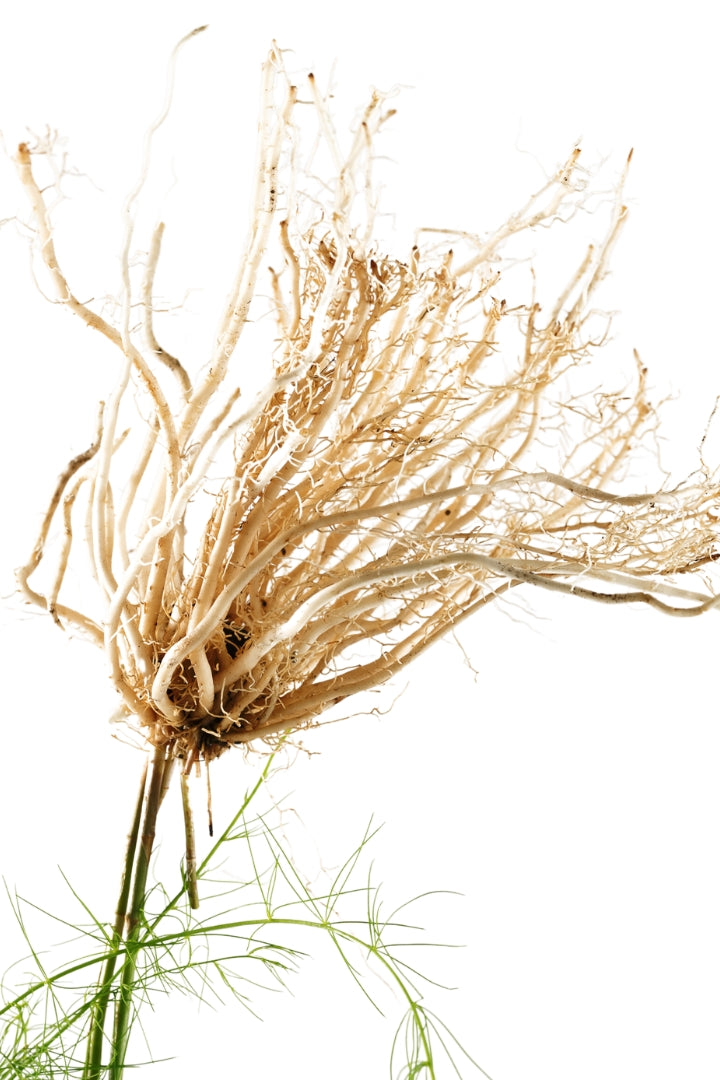Shatavari, scientifically known as Asparagus racemosus, is an herb that has been traditionally used for centuries in Ayurvedic medicine, often referred to as ‘The Queen of Herbs’. The name Shatavari translates to ‘one who possesses a hundred husbands’ in Sanskrit, indicating its reputation for promoting female reproductive health.
In Ayurvedic medicine, Shatavari is considered a rejuvenating herb that nourishes and helps to balance the female reproductive system. It is often used as a tonic to support fertility, increase breast milk production in nursing mothers, and alleviate symptoms of menopause. Shatavari is also used to promote digestion, boost immunity, and enhance overall vitality. It also has adaptogenic properties, meaning it helps the body adapt to stress and promotes overall well-being.
The herb is native to India, but it is also found in other parts of Asia and Africa. Shatavari belongs to the asparagus family, so it is also known as Indian or Wild Asparagus, and typically grows as a climbing plant with small, fragrant flowers. The roots and rhizome of the Shatavari plant are the primary part used for medicinal purposes.
The herb contains a variety of bioactive compounds, including saponins, flavonoids, essential minerals and phytoestrogens, which are biochemicals with estrogen-mimicking properties. These components are believed to contribute to its medicinal properties, especially for supporting the female reproductive system and relieving PMS symptoms.
Shatavari has gained popularity in Western cultures relatively recently, mainly as a result of increased interest in traditional and alternative medicine practices such as Ayurvedic medicine. Because of the incredible list of health benefits, particularly for PMS and hormone balance, ashaya have included it as a key ingredient in the In-Flow PMS & Period Relief Oral Powder.
The list of indicated claims include that it is used traditionally in Ayurvedic medicine as:
- A female tonic and to support the female reproductive system health
- Relieves symptoms of premenstrual tension
- Supports a healthy sexual function and promotes a healthy libido
- Promotes preconception health and supports breast milk production
- Used to temporarily relieve mild fluid retention
- Assist flushing of the urinary tract, increase urine output and relieve symptoms of medically diagnosed cystitis
It is important to note that while Shatavari has a long history of traditional use and anecdotal evidence supporting its benefits, individual responses to herbal remedies can vary.
Like all supplements, consistency is key and you will likely see benefits over time. It is important to incorporate movement, adequate sleep, a balanced diet and meditation into your daily ritual. It is easy (and potentially very beneficial) to take a daily supplement but without other lifestyle changes, it may not be enough to make a long-term difference. And of course, before you start taking any supplement please consult with your medical practitioner.
Shatavari is found in our In-Flow Period & PMS Relief.
For more information on the key benefits of Shatavari see our Ingredient Glossary.

